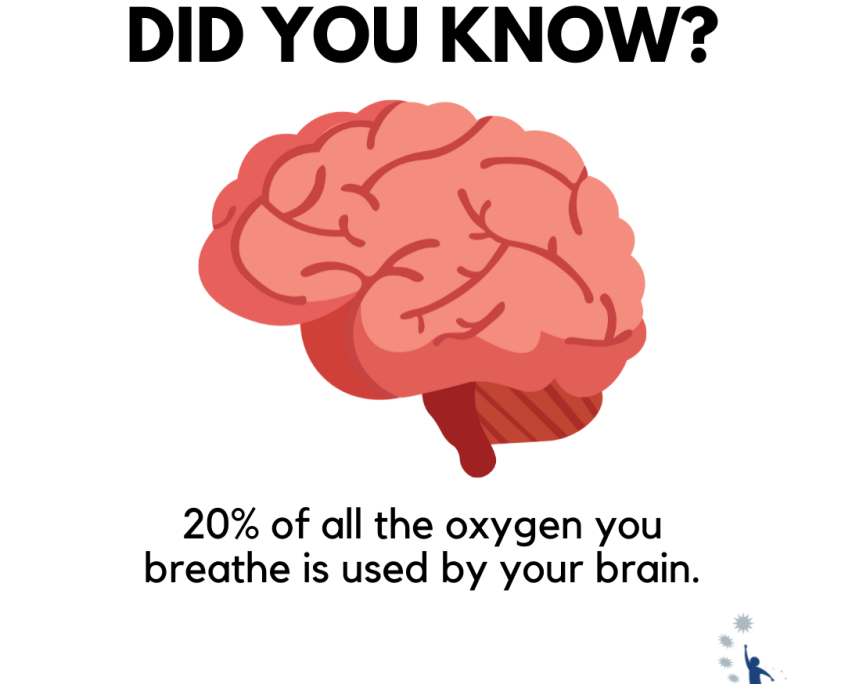Your Brain is an “Energy Hog”: Maintaining Blood Flow is Key to Preventing Dementia

You may have heard that the brain makes up only 2% of our body weight, but it is a veritable “energy hog”—it consumes a whopping 20% to 30% of our body’s total oxygen and energy supply! Because of this, the brain is exceptionally sensitive to whether its oxygen supply is adequate.
Simply put, cerebral blood flow is the brain’s “lifeline.” If this lifeline is compromised, the brain begins to “starve” from lack of oxygen. Over the long term, this significantly increases the risk of developing Alzheimer’s disease (commonly known as dementia).
1. Why is the Brain so “Demanding”?
Think of the brain as the core department in a company. Although it has relatively few employees (only 2% of body weight), it handles the most complex and critical tasks (thinking, memory, emotions, commanding the entire body). Therefore, this department’s “energy and oxygen consumption” is naturally much higher than any other.
The brain’s nerve cells need a steady supply of oxygen and nutrients to function properly, communicate, and survive. If the blood supply is insufficient, they become weak and can even die. Since brain cells have limited ability to regenerate, the memories and functions they hold are lost with them.
2. How Does Poor Blood Flow Harm the Brain Step by Step?
Poor circulation in the brain is more than just causing “dizziness.” It damages the brain on three deeper levels:
-
It Directly “Starves” Brain Cells: Just like a heart attack is caused by blocked blood flow leading to heart muscle death, poor blood flow in the brain can directly cause nerve cells to become damaged and die from lack of oxygen and energy. This is the most direct harm.
-
It Paralyzes the Brain’s “Waste Removal System”: Our brains produce “waste” while working, especially a toxic protein called beta-amyloid, a key culprit in Alzheimer’s disease. The brain has a unique “cleanup crew” system (the glymphatic system) responsible for clearing this waste away during sleep. This cleaning system relies on good blood flow to function. Poor circulation means the cleanup crew “goes on strike,” leading to a buildup of toxic waste that accelerates brain degeneration.
-
It Damages the “Brain’s Moat” (The Blood-Brain Barrier): The brain has a protective barrier (the blood-brain barrier) that allows beneficial substances in while blocking harmful ones. Chronic poor circulation can damage this barrier’s integrity, allowing external harmful substances and inflammatory factors to enter the brain more easily, sparking “warfare” (neuroinflammation) that further damages nerve cells.
3. Caring for Cerebrovascular Health is the Smartest “Brain Health” Investment
The good news is that many factors leading to poor cerebral blood flow are preventable and controllable. Protecting your heart and blood vessels is a direct way to protect your brain.
You can start today:
-
Manage Blood Pressure, Blood Sugar, and Cholesterol: Hypertension, high blood sugar, and high cholesterol are the primary villains that damage blood vessels. Regular monitoring and following your doctor’s advice are like dredging and maintaining the brain’s “lifeline.”
-
Exercise Regularly: Moderate aerobic exercise (like brisk walking, swimming, dancing) most days of the week effectively promotes blood circulation throughout the body, including the brain. Exercise is one of the best ways to “flush” your blood vessels.
-
Eat a Balanced Diet: Eat plenty of vegetables, fruits, whole grains, and fish rich in Omega-3s (like salmon). Reduce intake of high-salt, high-sugar, and high-fat foods. The Mediterranean diet has been proven to be very beneficial for brain health.
-
Ensure Quality Sleep: Sleep is the golden time for the brain to perform its “deep cleaning.” Aim for 7-8 hours of quality sleep each night to give the cleanup crew ample time to work.
-
Quit Smoking and Limit Alcohol: Smoking and excessive alcohol directly damage the inner lining of blood vessels and accelerate atherosclerosis. Avoid them.
-
Challenge Your Mind and Socialize: Actively learning new things and socializing with others is like “exercise” for your brain. It helps build more neural connections and boosts your brain’s cognitive reserve.
In a nutshell:
To prevent dementia, don’t just focus on “brain-boosting” supplements; pay more attention to “blood vessel health.” A healthy brain inevitably depends on a smooth, unimpeded “logistical support system.” Starting now, caring for your brain’s blood supply as much as you care for your heart is the most effective strategy to protect your future memories and cognitive vitality.
